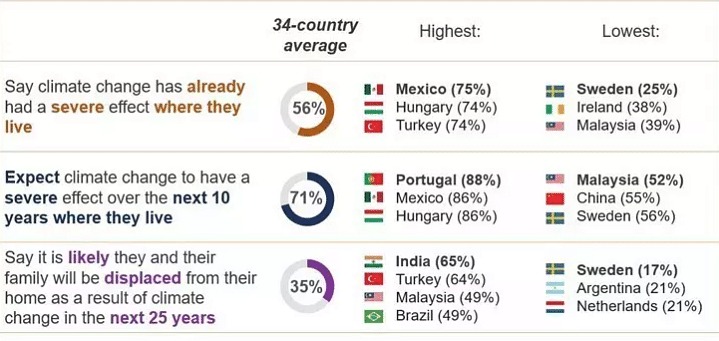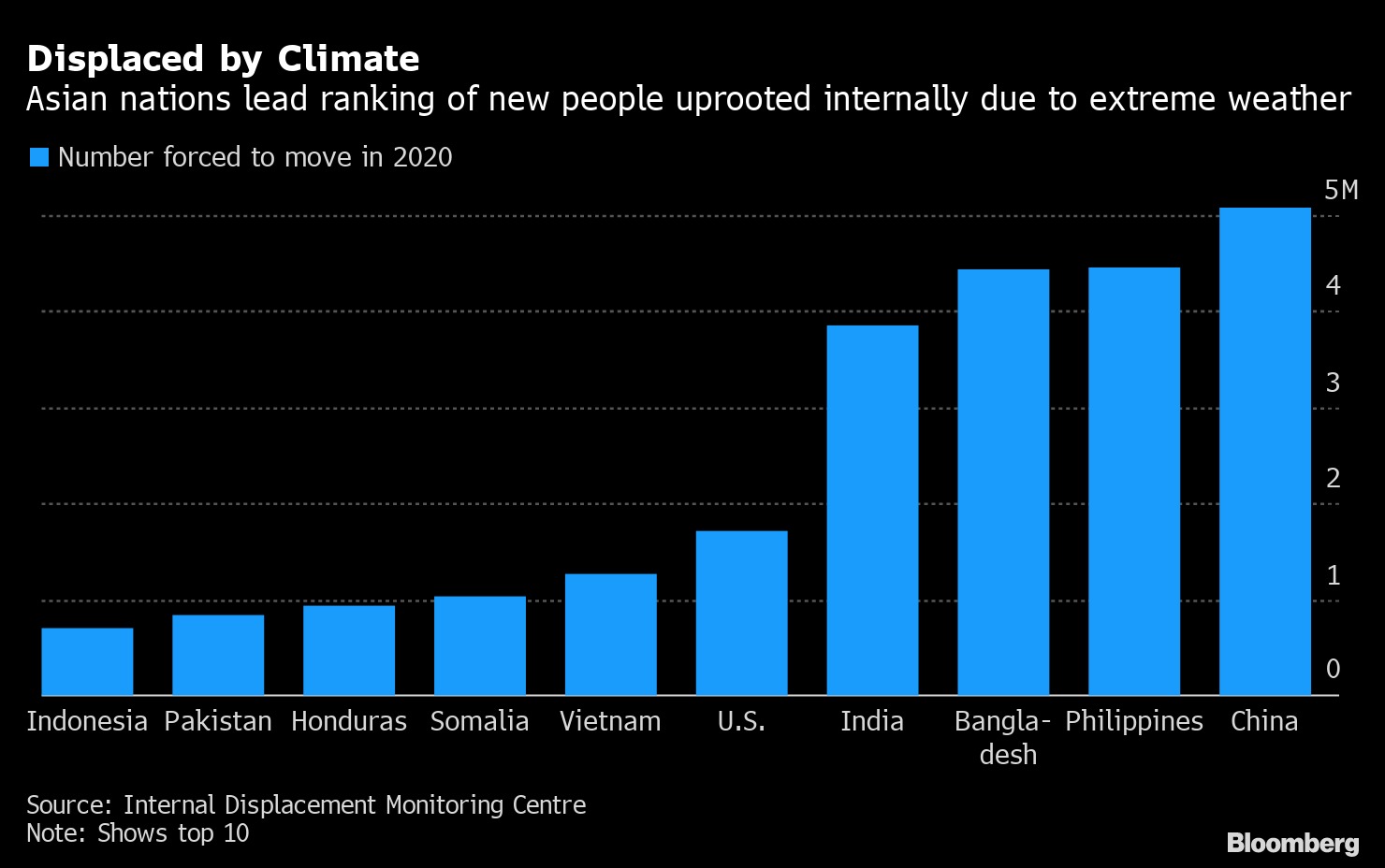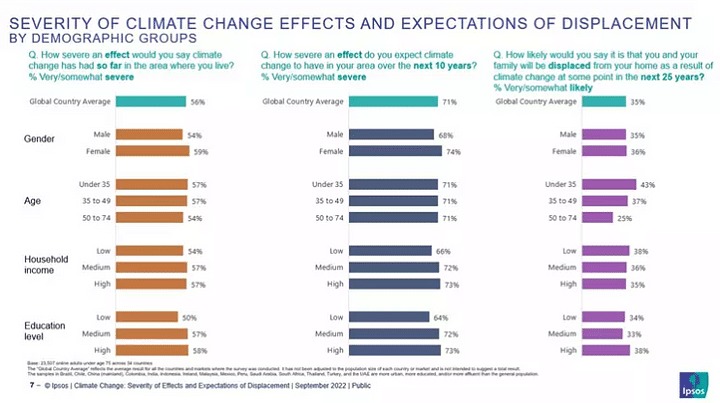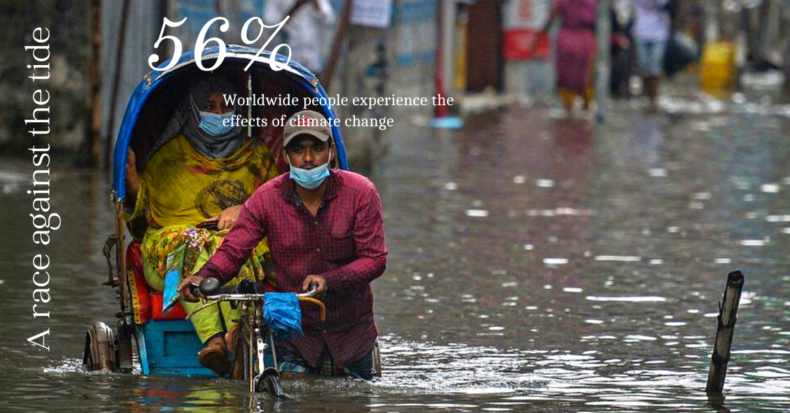The entire world is a witness to the recent havoc climate change has been wreaking. Half of the global population believes that climate change has severely affected their lives.
The recent climate change catastrophes across the globe have had far-reaching impacts on the lives of millions of people. The recent catastrophes of flash floods, extended heatwaves and droughts throughout the world, exacerbated by climate change have battered the ecological equilibrium putting millions of people in danger.
As these events continue to arise and the danger looms around the corner, let’s take a close look at how many people believe they are being affected by these climatic shifts.
Mapping the Impact: How People Think Climate Change is Affecting their Lives
A survey conducted by The World Economic Forum aimed at studying how people view climate change and how they believe it is affecting their lives. An extensive impact on their life has already been felt by more than half of individuals, according to this recent survey.
And more than a third believe that within 25 years, climate change will drive them out of their houses. Seven out of ten predict that their country will see significant effects during the next ten years.

More than half of adults on the planet say climate change has already had a severe impact.
According to the survey, more than half of respondents worldwide claim that change in climate has had a direct influence on their lives.
Across 34 nations from China to Mexico and South Africa to Sweden, an average of 56% say climate change is already having severe effects. More than 70% of people in Spain, Turkey, Colombia, Mexico, and Hungary, say they’ve experienced severe changes in climate. In nations that have experienced extreme weather more recently, the survey also found regional differences.
The areas of North America that experienced drought, heatwaves, and forest fires felt the effects more severely than other sections of the continent.
According to the poll, there has been a decline in reports from nations including Sweden, Malaysia, and Ireland; nonetheless, although not everyone has experienced the effects during the past ten years, the average number of people from each nation reporting serious effects is 71%.
Fear Of Displacement And Forced Migration Intensified By Climate Change

Displaced by Climate- International Displacement Monitoring Centre
According to recent research, climate change caused 23.7 million people to be internally displaced around the world in 2021.
By the end of 2021, disasters that occurred in 84 different nations and territories had forced a minimum of 5.9 million people to relocate.
According to the survey, an equally distressing fact is that an average of 35% of people worldwide anticipate having to forcefully evacuate their homes and migrate at some time in the following 25 years as a result of continuing change of climate.
Fear of being forced from their homes is greatest among under-35s, with 43% saying it’s likely to happen compared to 37% of 35-to-49-year-olds and just a quarter of over-50s. Almost two-thirds of people in Turkey and India fear losing their homes to climate change.
Almost half of the people in Brazil, South Africa, Spain and Malaysia also expect to be forced from their homes in the next 25 years compared to just 17% in Sweden and 21% in Argentina and the Netherlands.
Additionally, a geographical element was observed, with more than 50% of the inhabitants of Spain, Malaysia, Brazil, and South Africa anticipating relocation owing to the effects of climate change.
Climate Change and Gender: Looking at the Unequal Distribution of the Impacts Felt

Three-quarters of women expect the effects to worsen in the next decade compared to two-thirds of men
Studies reveal that women are more susceptible than men to being impacted by climate change. Due to their restricted access to recuperation, rehabilitation, and reconstruction, climate change has greater effects on poor women.
According to recent research, sexism and entrenched inequality around the world have a long history of affecting women disproportionately, which contributes to the adverse effects of climate change.
Economic, social, ecological, political, physical, and emotional factors, among others, are some of the key factors that affect how vulnerable women are to natural catastrophes. This is because women are financially more vulnerable and more likely than men to be impoverished, have restricted access to fundamental human rights like the right to land ownership and to move around freely, and experience routine violence that worsens during unstable times.
According to a report by the UN Environment, women make up 80% of those displaced by climate change.
The study included more than 23,500 participants under the age of 75, and it found that individuals of all ages and genders are concerned about climate change, albeit significantly more women (59%) than men (54%) claim to have already felt its severe consequences.
In contrast to two-thirds of men, women anticipate a worsening of the impacts over the next ten years.
Extreme weather patterns and a failure to address change were two of the top three global concerns for the foreseeable future, according to the World Economic Forum’s Global Risks Report 2022. The greatest risk over the following ten years was determined to be inaction on climate change.
As climate change worsens and the extensive impacts can no longer be suppressed, there needs to be a plan to accommodate millions of people whose lives are affected by these climate change catastrophes. With millions on the verge of facing displacement and getting exposed to life-threatening circumstances, mitigation and adaptation measures need to be improvised as the climate change crisis escalates.













